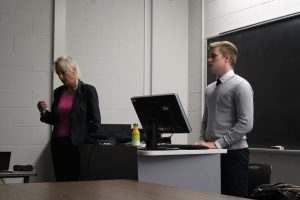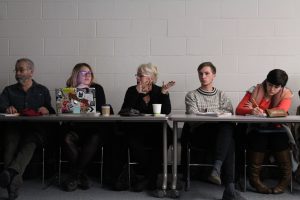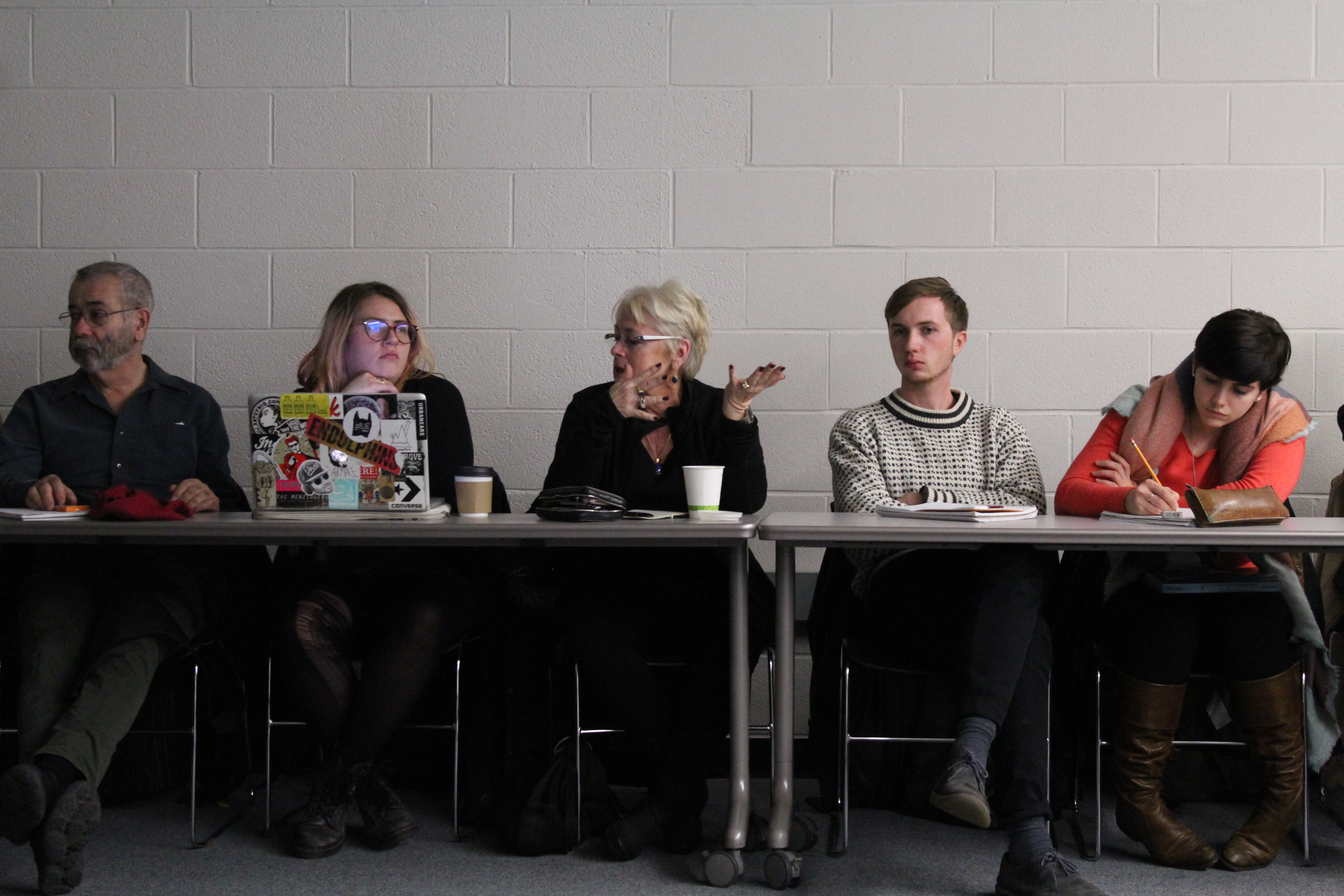Concordia’s German program worked with The Holocaust Education and Genocide Prevention Foundation to host a workshop on moral responsibility in today’s politics
The Holocaust served as historical background in a presentation on moral responsibility in modern-day politics organized by Concordia’s German program on Oct. 27.
Matthias Pum, an Austrian who travels abroad to conduct Holocaust memorial services, spoke to a group of about 30 people on Thursday about the context and causes of the Holocaust, and how many Austrian and German citizens were convinced the actions of the National Socialist government were right and justified.
He used examples to show how Nazi propaganda was “emotionally-based” and presented “opinion or fiction as a matter of fact.”

He referenced the words of Hermann Goering, one of the highest-ranking Nazi officials, to illustrate how populations can be influenced into believing anything. “Voice or no voice, the people can always be brought to the bidding of the leaders. That is easy. All you have to do is tell them they are being attacked, and denounce the pacifists for lack of patriotism and for exposing the country to danger. It works the same way in any country,” Pum said.
Pum pointed out how the unwillingness from the majority of countries in the world to accept Jewish refugees during the Nazi regime is comparable to the current treatment of Syrian refugees.
He referenced the Evian Conference of 1938, where representatives from 32 countries gathered to discuss helping Jewish refugees. In the end, only the Dominican Republic increased their refugee intake. The economic depression of the 30s made countries hesitant to take in refugees. According to the United States Memorial Museum’s website, “all this red tape existed against the backdrop of other hardships: competition with thousands of equally desperate people, slow mail that made communication with would-be sponsors difficult, financial hardships, and oppressive measures in Germany that made even the simplest task a chore.”
While Syrian refugees are accepted in greater numbers than the Jewish refugees were, Pum believes that wealthier countries need to do more to accommodate and assist the refugees fleeing the current civil war in the Middle East.
Pum blamed “right-wing populism” and parties such as the Austrian Freedom Party (FPÖ), Germany’s Alternative für Deutschland Party and the United Kingdom Independence Party for modern anti-refugee sentiment in Europe.

While none of the parties he mentioned are currently in power in their respective countries, the FPÖ is presently polling seven points higher than the next most popular party, and the Alternative für Deutschland Party is gaining support and slowly becoming Germany’s third most popular political party.
Pum discussed an ad by the Alternative für Deutschland, which urged citizens to have the “courage to stand by Germany.” He likened this to Goering’s aforementioned words, saying the ad implied the same denunciation and vilification of “pacifists for lack of patriotism and exposing the country to danger.”
Pum’s overall message was about the importance of learning from history in order avoid repeating the mistakes of the past. He believes modern “right-wing populism” is all too similar to the mentality that overtook Germany and Austria before and during World War II, a mentality that led to the Holocaust. He said he believes anyone is capable of making difference in the world by learning about the historical context of past events and applying that knowledge to modern day circumstances.




